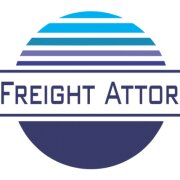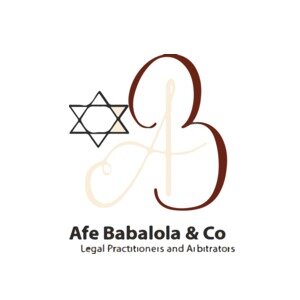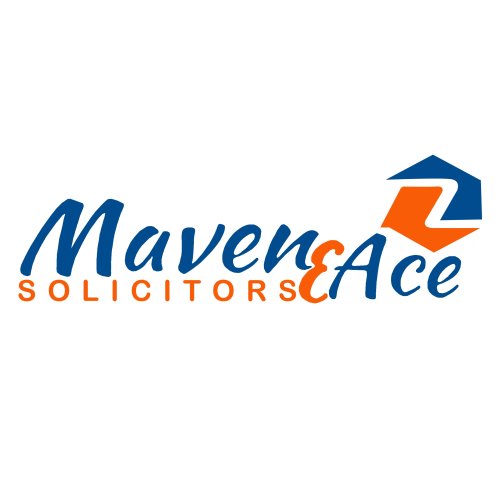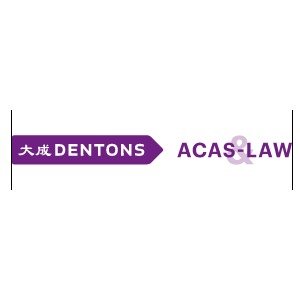Best Renewable & Alternative Energy Lawyers in Port Harcourt
Share your needs with us, get contacted by law firms.
Free. Takes 2 min.
List of the best lawyers in Port Harcourt, Nigeria
About Renewable & Alternative Energy Law in Port Harcourt, Nigeria
Renewable and alternative energy represents a fast-growing sector in Port Harcourt, Nigeria, as the city continues to grapple with energy needs and environmental concerns. Renewable energy encompasses sustainable sources such as solar, wind, hydro, and biomass, with solar power seeing substantial adoption in both urban and rural areas. The legal landscape in Port Harcourt is influenced by national energy policies, state regulations, and local government bylaws designed to support Nigeria's drive toward cleaner and more reliable energy. For individuals and businesses, understanding this evolving legal environment is essential for compliance, investment, project development, and dispute resolution in the renewable energy sector.
Why You May Need a Lawyer
Engaging a lawyer with expertise in renewable and alternative energy law in Port Harcourt can be crucial for several reasons. Individuals or businesses may encounter challenges such as navigating licensing requirements for energy projects, understanding land use regulations, securing power purchase agreements, or dealing with disputes over energy contracts. Lawyers can also guide compliance with national and state energy regulations, assist in negotiating with private or governmental entities, and help resolve issues related to environmental standards, intellectual property for energy technologies, financing, and partnership arrangements. Legal support ensures you avoid costly mistakes and protect your investments as the sector evolves.
Local Laws Overview
Port Harcourt falls under several regulatory frameworks affecting renewable and alternative energy. The Nigerian Electricity Regulatory Commission (NERC) establishes key policies, including mini-grid regulations for rural electrification and guidelines for captive and embedded generation. The Rivers State Government may impose additional requirements on land use, taxation, and environmental impact assessments. Permitting and interconnection to the national grid are also subject to legal approval. Importation and use of renewable energy technologies must comply with standards from the Standards Organization of Nigeria and other relevant authorities. Understanding these legal obligations is vital for any person or entity seeking to participate in the renewable and alternative energy industry in Port Harcourt.
Frequently Asked Questions
What types of renewable energy are popular in Port Harcourt?
Solar energy is the most widely adopted, followed by small-scale wind and biomass initiatives. Hydro power projects are being considered but are less common within the city.
Do I need a license to generate renewable energy for my home or business?
Small-scale distributed generation for personal use may not require a license, but larger installations and systems supplying power to others often need approval from NERC and local authorities.
What permits are required to install a solar panel system?
Permits depend on system size and capacity. Small home systems usually require minimal approval, while commercial installations need building permits, environmental clearance, and sometimes grid-connection permits.
Are there incentives for investing in renewable energy in Port Harcourt?
Currently, incentives are available through national initiatives, including potential tax exemptions, import duty waivers on renewable equipment, and favorable loan schemes, subject to eligibility and compliance.
How can disputes related to renewable energy contracts be resolved?
Disputes are typically settled through negotiation, mediation, or arbitration, and may advance to court if necessary. A lawyer can recommend the most effective dispute resolution method for your situation.
Are there environmental regulations restricting renewable energy projects?
Yes. Renewable energy projects must comply with environmental protection laws, which may require environmental impact assessments and consistent monitoring, especially for large or commercial projects.
Can I sell excess electricity generated from my solar system back to the grid?
This is possible, but it requires compliance with NERC regulations and an agreement with the electricity distribution company serving your area. Legal advice is recommended before proceeding.
What are the risks of not following renewable energy regulations?
Non-compliance can lead to fines, equipment seizure, closure of the project, or litigation. Legal compliance protects your investment and reputation.
Is it possible to partner with foreign investors for renewable energy projects?
Yes, but partnerships may be subject to additional regulations on foreign investment, local content requirements, and transfer of technology. Legal consultation is crucial to meet all statutory obligations.
Can homeowners associations or estates set their own renewable energy regulations?
Yes, many estates set additional guidelines to maintain standards and aesthetics, but local and national laws take precedence. Consulting a lawyer helps clarify which rules apply.
Additional Resources
Several bodies and organizations can assist individuals and businesses interested in renewable and alternative energy in Port Harcourt. The Nigerian Electricity Regulatory Commission (NERC) is the main regulator, publishing notices and compliance requirements. The Rivers State Ministry of Energy and Natural Resources manages state-level approvals. The Standards Organization of Nigeria ensures equipment safety and standards, while the Rural Electrification Agency offers information on mini-grids and off-grid options. Also, the Renewable Energy Association of Nigeria provides industry news and networking opportunities.
Next Steps
If you require legal assistance in renewable or alternative energy in Port Harcourt, start by clearly identifying your needs or the issue at hand. Gather all relevant documents, such as project proposals, contracts, or correspondence with authorities. Seek a lawyer or legal firm with proven expertise in energy law and experience within Port Harcourt. An initial consultation can clarify your options and outline the pathway toward regulatory compliance, dispute resolution, or contract negotiation. Maintaining proactive and informed legal support is essential for sustainable and successful renewable energy projects in Port Harcourt, Nigeria.
Lawzana helps you find the best lawyers and law firms in Port Harcourt through a curated and pre-screened list of qualified legal professionals. Our platform offers rankings and detailed profiles of attorneys and law firms, allowing you to compare based on practice areas, including Renewable & Alternative Energy, experience, and client feedback.
Each profile includes a description of the firm's areas of practice, client reviews, team members and partners, year of establishment, spoken languages, office locations, contact information, social media presence, and any published articles or resources. Most firms on our platform speak English and are experienced in both local and international legal matters.
Get a quote from top-rated law firms in Port Harcourt, Nigeria — quickly, securely, and without unnecessary hassle.
Disclaimer:
The information provided on this page is for general informational purposes only and does not constitute legal advice. While we strive to ensure the accuracy and relevance of the content, legal information may change over time, and interpretations of the law can vary. You should always consult with a qualified legal professional for advice specific to your situation.
We disclaim all liability for actions taken or not taken based on the content of this page. If you believe any information is incorrect or outdated, please contact us, and we will review and update it where appropriate.

















